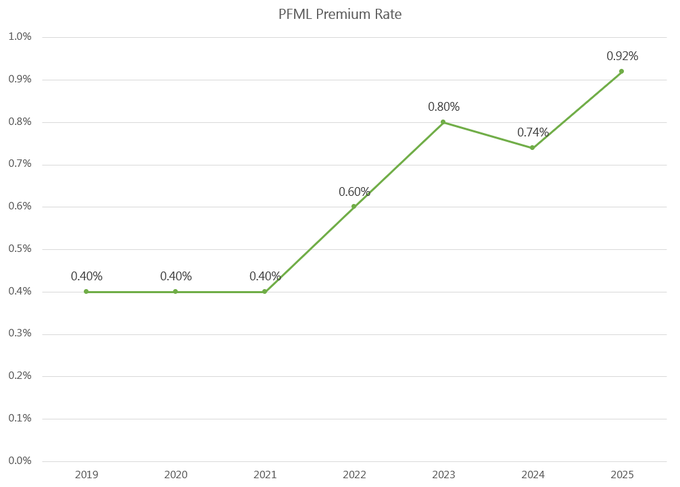When a bill hits the magic 2/3 vote threshold it’s often said it was approved with a “veto-proof” majority. While that is technically true, that show of legislative support is only meaningful if leadership is willing to schedule an override vote when the Governor issues a veto. The Governor vetoed several bills this year that were adopted with 2/3 support (some unanimously) this session. As reported by the Seattle Times:
“The veto pen struck again. For the past few years, Gov. Jay Inslee has irked his fellow Democrats with some of his vetoes, prompting outcries and even lawsuits from legislative leaders for his more creative applications of executive authority."
Despite lawmakers saying they’re “extremely disappointed” with some of the Governor’s vetoes, there has been no indication by legislative leadership that veto override votes will occur.
Here are the bills the Governor completely vetoed this session:
- HB 1623: Addressing the extent to which Washington residents are at risk of rolling blackouts and power supply inadequacy events (House: 93-0-5; Senate: 49-0)
- HB 1648: Replacing an inactive certificate status with an inactive license designation (House: 98-0; Senate: 48-0-1)
- HB 1704: Regulating service contracts and protection product guarantees (House: 97-0-1; Senate: 46-2-1)
- HB 2075: Establishing service requirements for the department of social and health services (House: 96-1-1; Senate: 48-0-1)
- SB 5017: Clarifying school district procurement requirements for service contracts for construction management, value engineering, constructibility review, and building commissioning (House: 96-2; Senate: 28-20-1)
- SB 5810: Concerning insurance regulation (House: 97-0-1; Senate: 49-0)
Here are the bills the Governor issued partial vetoes for this session (excluding budget provisos):
- HB 1122: Concerning the retirement age for state guard members (House: 95-0-3; Senate: 47-0-1)
- HB 1153: Increasing language access in public schools (House: 86-12; Senate: 43-5-1)
- HB 1655: Encouraging the opening of safety rest areas to the public (House: 97-0-1; Senate: 48-0-1)
- HB 1694: Concerning logistical processes for the regulation of priority chemicals in consumer products (House: 83-14-1; Senate: 46-3)
- HB 1812: Modernizing the energy facility site evaluation council to meet the state's clean energy goals (House: 92-6; Senate: 29-20)
- HB 1846: Providing a tax preference for rural and nonrural data centers (House: 68-30; Senate: 36-13)
- HB 2076: Concerning rights and obligations of transportation network company drivers and transportation network companies (House: 56-42; Senate: 40-8-1)
- SB 5490: Creating the interbranch advisory committee (House: 58-40; Senate: 47-0-2)
- SB 5664: Concerning forensic competency restoration programs (House: 97-1; Senate: 49-0)
- SB 5901: Concerning economic development tax incentives for targeted counties (House: 69-28-1; Senate: 36-12-1)
Although some states automatically schedule a veto override session each year to respond to vetoes by their Governor, Washington lawmakers need to either call a special session or wait until the next scheduled regular session to act.
A new law adopted this year by lawmakers (SB 5196) finally puts into place the procedures necessary for the legislature to call itself into a special session (something that has never happened). Will the legislature take advantage of this new process, or will the Governor’s vetoes of bills advertised as “veto-proof” be allowed to stand?
Additional Information
Governor Inslee vetoes funding for research on salmon and electrical grid stability
Randall: Veto ‘a short-sighted attempt to apply Seattle-centric, one-size-fits-all policy’ to WA
Reps. Dye and Klicker warn governor’s sectional vetoes to energy facility siting bill will be devastating to Eastern Washington’s future landscape





